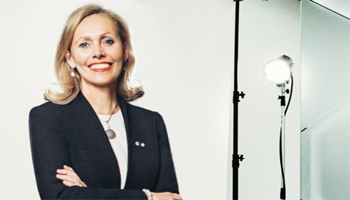By Monique F. Leroux
International Women’s day was originally called International Working Women’s Day. It was all about work, and I think that decent work has to be one of the pillars in any gender equality strategy – and linked to this, education.
Globally, co-operatives commit to gender equality at different levels by appointing women senior executives, and at individual job level.
We take the same actions on gender equality as investor companies. The most elementary measure is to provide women with better work/life balance, and women professionals certainly are appreciative of this. I think though, that when co-ops engage, they do so in a more long-term, more sustainable way.
The results show. Nine of the largest 100 co-operative and mutual insurers, for instance, have women CEOs, while only one of the top 100 stock company insurers is led by a woman.
This brings me to figures! Some co-operative federations have very good knowledge on women employment. Cicopa, our industry and services sector, mentioned that in Italy four out of 10 social co-ops have women at the helm.
Some regions pay specific attention to equality figures. I congratulate and strongly encourage them.
Co-operatives UK for instance has brought forward that the largest retail co-operatives have almost twice as many women on their boards as FTSE 100 and 250 companies. I also salute the co-operatives unit at the ILO, who have recently published the Women and Care report.
We need to quantify equality, before we can act on it. Let’s do like we did with the World Co-operative Monitor, which has become one of the key instruments of the Alliance to assert our global impact. Let’s collect data on gender ratio in our co-ops.
We also must also embrace and use the instruments and guidance that our governments provide. The Alliance, for instance, welcomes and supports the UN’s Planet 50- 50 initiative for gender equality, which is worth co-operators looking up.
There’s a very clear economic incentive to develop equality in co-operative businesses. The 2015 report by McKinsey & Company on Why Diversity Matters showed that companies in the top quartile for gender diversity are 15% more likely to have financial returns above their respective national industry medians.
The report also showed that in the UK, gender diversity on the senior-executive team corresponded to a higher performance uplift: for every 10% increase in gender diversity, earnings before interest and tax rose by 3.5%.
Gender equality affects all people, and uniting men and women in this issue is important. We all have something to win. If we don’t develop equality, we may collectively lose out – socially, economically and politically.
I appreciated the UN’s “He for She” programme, because it engaged men for a cause that was originally “a struggle for women by women”.
We should not forget that co-ops have a role to play on equality at society level. Concern for community is our 7th principle. This plays in two ways.
Firstly, co-ops are schools of emancipation. It is widely recognized that by voting and voicing their opinion, people are taught to take charge and develop a self-help attitude.
Secondly, co-ops improve equality through their doing co-operative business. For instance, credit unions in remote rural areas provide the financial services women need to take charge.
Financial co-operatives serve the world’s most remote regions, where big banks don’t have franchises. They empower women as they provide a way to save their earnings and make transactions.
Within co-operatives, initiatives providing work-life balance are a very typical, but also very strong instrument. But we need to promote equality part of our everyday operations. Nominate women to special mandates for instance. Or provide mentorship and coaching opportunities.
To address this at Desjardins, for example, I created a female executive support network to coach women executives. And when I was recruiting staff, as a manager, I have always insisted on having a balanced team. I would simply not start the selection process or close recruitment before there were at least a couple of women within the candidate group.
At the Desjardins 2013 congress, members committed to gender parity objective. Today, 45% of Desjardins 5000 elected officers are women.
If you start out to promote equality in your co-op, the first thing to do is to ensure the support of the top. If equality is not on the Board’s agenda, efforts will not be effective. But another requirement is formality. Create a formal gender equity action plan. Create formal committees with a name, a chair, and so on. Treat it like a work project, because it is! At the end of the day, it will advance your co-op’s business.
The key to make equality work for your co-op, is to promote it across all our management instruments. Take succession planning for instance. Why not integrate equality into succession planning, have a balanced list?
The co-operative model is again unique here. A co-op can embed equality into its governing documents. We need to use our intrinsic co-operative assets to our advantage.
My personal motto is unite, promote and develop, and this applies here. We need to unite men and women behind this issue, and to develop equality instruments, but we should not forget to promote. When I started my career, in a group of perhaps 15 young finance professionals, there were just two women. I wouldn’t say there weren’t some challenges, but being women also made us stand out more. Try to turn what could be an obstacle into an opportunity.
I have also often sought out mentors, senior managers whom I could rely on for honest advice, and have favoured frankness. I have taken the initiative in discussions with my male colleagues – and I advise other women to be more audacious. Rather than wait to be included, step forward and voice your requests and opinions.
Do this with conviction, but also with respect.
Courtesy: ICA
(Monique F. Leroux is the President of the International Co-operative Alliance)













































